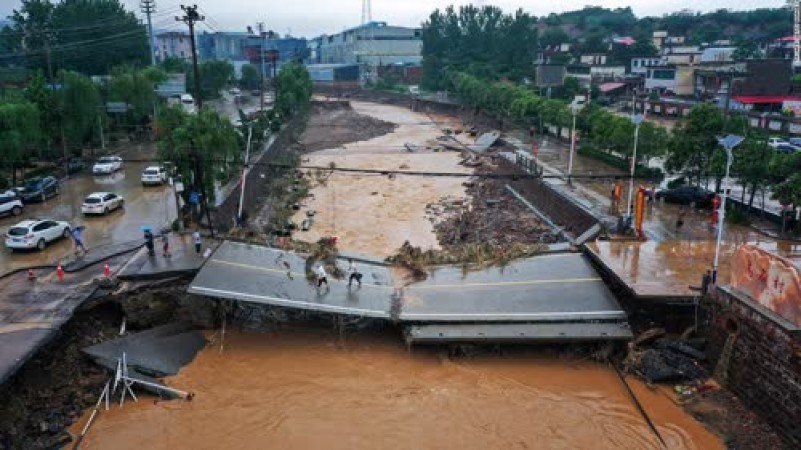
Cars and houses submerged in water, commuters wading through buses knee-high in floods, and homeowners counting the cost of destroyed properties. Residents of Nigeria, Africa's most populous nation, are used to the yearly floods that engulf the coastal city during the months of March to November.
In mid-July, however, the major business district of Lagos Island experienced one of its worst floods in recent years. Home to more than 24 million people, Lagos, a low-lying city on Nigeria's Atlantic coast, may become uninhabitable by the end of this century as sea levels rise due to climate change, scientific projections suggest.
The problem is exacerbated by "inadequate and poorly maintained drainage systems and uncontrolled urban growth," among others, according to a study led by the Institute of Development Studies. Nigeria's hydrological agency NIHSA has predicted more catastrophic flooding in September, usually the peak of the rainy season.
Air Force chief of India RKS Bhadauria reaches Israel to enhance military ties
Poverty of 'Pakistan,' first sold buffaloes, now Imran Khan is renting PM's house
United States approves sale of Harpoon Joint Common Test Set to India for USD 82 mn
Massive blast explosion and gunfire hit Afganistan capital Kabul